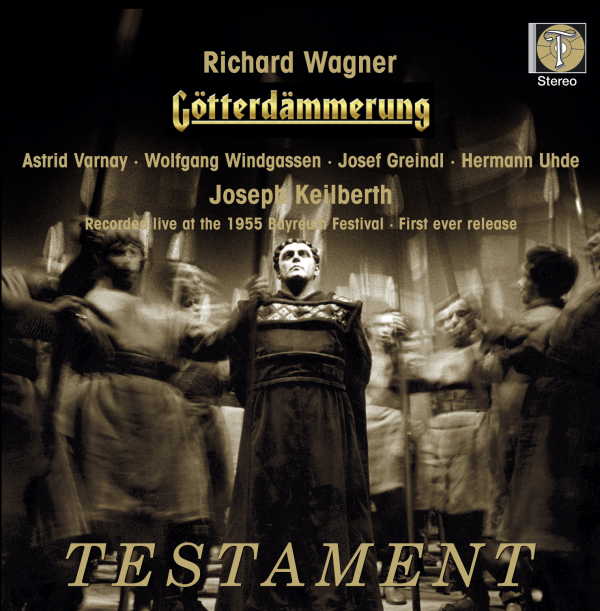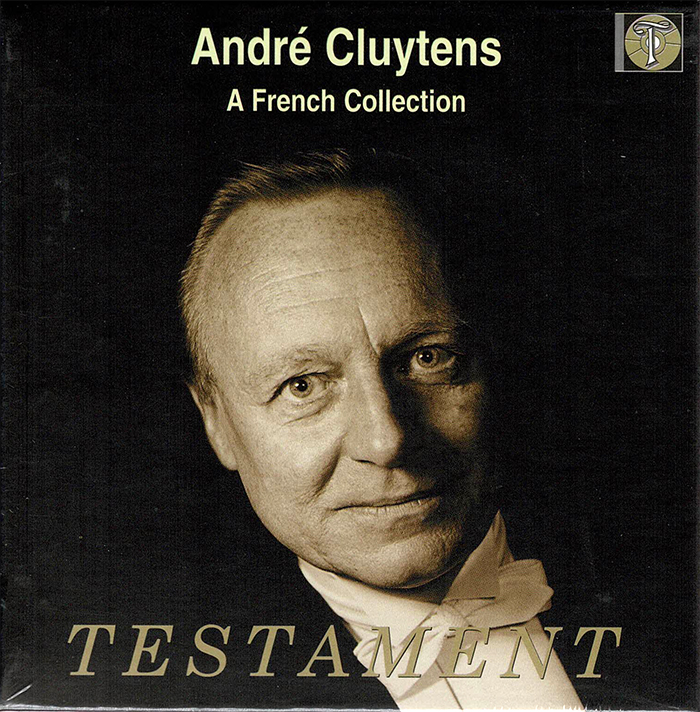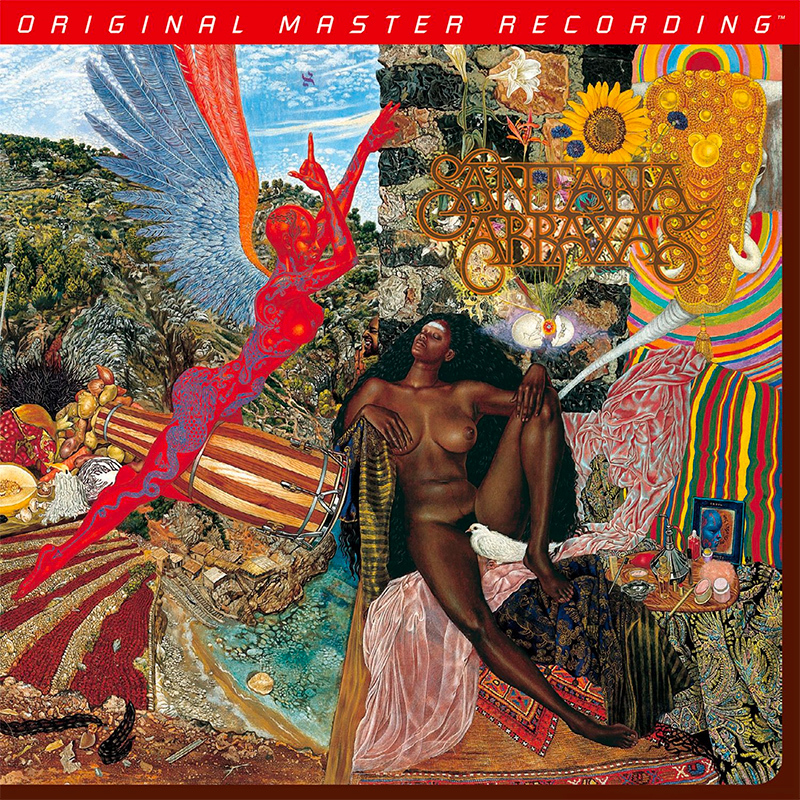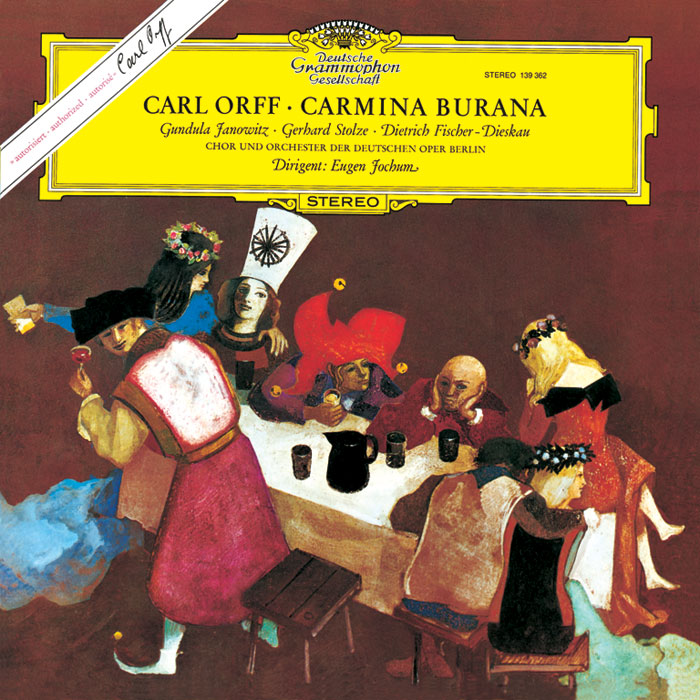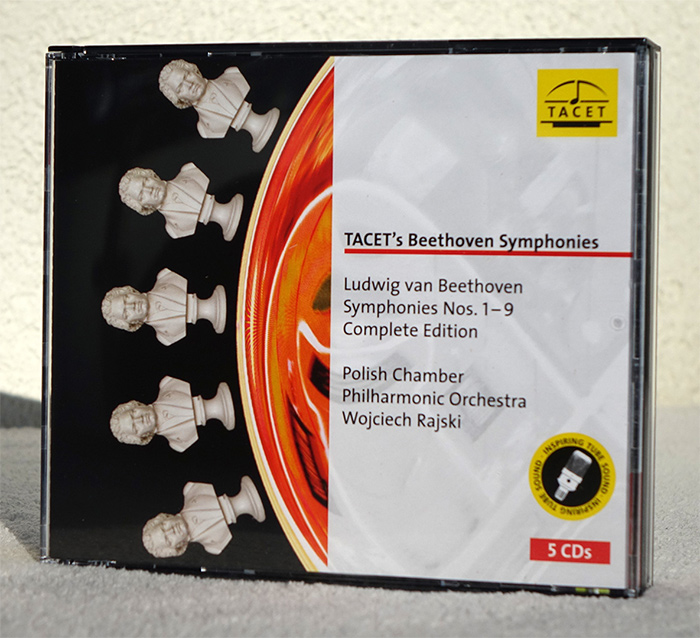Logowanie
Dziś nikt już tak genialnie nie jazzuje!
Bobby Hutcherson, Joe Sample
San Francisco
SHM-CD/SACD - NOWY FORMAT - DŻWIĘK TAK CZYSTY, JAK Z CZASU WIELKIEGO WYBUCHU!
Wayne Shorter, Freddie Hubbard, Herbie Hancock, Ron Carter, Elvin Jones
Speak no evil
UHQCD - dotknij Oryginału - MQA (Master Quality Authenticated)
Chesky! Niezmiennie perfekcyjny
Winylowy niezbędnik
ClearAudio
Double Matrix Professional - Sonic
najbardziej inteligentna i skuteczna pralka do płyt winylowych wszelkiego typu - całkowicie automatyczna
WAGNER, Joseph Keilberth
Gotterdammerung
JOSEPH KEILBERTH 1908-68 A major name in German-speaking countries, Joseph Keilberth is still not well-known in Britain, perhaps because he was never greatly interested in making studio recordings for a prestigious international label. He was born and brought up in Karlsruhe (‘by chance, as I really come from a musical family in Munich’); the move came because his father had been recommended as principal cellist to the Karlsruhe orchestra, the Badische Staatskapelle, by the noted Wagner conductor Felix Mottl. After studying piano, cello and composition at the city’s Hochschule, Keilberth began his performing career as a cellist, taking over the baton impromptu one day when a heart problem struck down the conductor of the ensemble for which he was playing. After this he rose through the ranks at the town’s Staatstheater, growing up, musically speaking, under the influence of Mottl, still very present in the orchestra and especially in its Wagner interpretations. At first répétiteur, then Kapellmeister and, in 1935, Germany’s youngest general music director, Keilberth conducted his first Ring there in 1936. In the same year he first conducted the Berlin Philharmonic and guest appearances followed in other major German cities. In July 1940, on the recommendation of Wilhelm Furtwängler, he moved to Prague, and to the concert hall, as chief conductor of the Deutsche Philharmonie, the Czech capital’s resident German ensemble. In August 1945, after the war’s end and the sudden dispersal of his orchestra, he accepted the difficult task of rebuilding musical life in shattered Dresden, having first to retrieve his new orchestra, the Dresden Staatskapelle, from its refuge in the American sector. He began with Mozart and Strauss, including the symbolic local première of Die schweigsame Frau, a work banned by the Nazis because its librettist was Jewish. Just one month after signing his Dresden contract, Keilberth was offered the chief conductorship of the Berlin Philharmonic. Out of respect for his new post and for the dispossessed Furtwängler (then awaiting de-Nazification) he refused the offer. Keilberth’s work in Dresden continued with more Strauss and the appointment of the young Rudolf Kempe as his deputy. Between 1948 and 1951 he also appeared regularly at the Berlin Staatsoper, a guest engagement terminated after the Russian-controlled regime accused Carl Orff’s opera Antigonae of ‘formalism’ (Keilberth had recently given the work’s première in Dresden). In 1949 he was heard for the first time by the Wagner grandsons, conducting a memorial concert for Richard Strauss in the Festspielhaus. They were impressed and in 1950 Keilberth was invited to conduct Meistersinger in next year’s reopening Bayreuth Festival. He refused – because he did not want to share the performances with Hans Knappertsbusch, holding to the old Bayreuth tradition of ‘one work, one conductor’. In the words of his son and biographer Thomas, ‘Keilberth thought that in so doing he had ruined his chances of working at Bayreuth for ever but, to his great surprise, the Wagners invited him to conduct all the 1952 Ring performances’. These caused a stir because of Keilberth’s ‘strict’ tempos which were comparatively swifter than the Bayreuth traditionalists and press had got used to from the work’s most recent conductors there – Karl Elmendorff, Heinz Tietjen, Hans Knappertsbusch and Herbert von Karajan. There was talk of the ‘speeded-up film style’ of his Wagner – a style that actually owed much to major forerunners like Felix Mottl and Richard Strauss – and debate whether Keilberth was just ‘increasing speed’ or ‘forcing the pace’. ‘Keilberth’s Rhine Journey is made by fast steamer’ was a typical comment at the time. Clearly Wieland Wagner’s first ‘Latin’ conductor had been found. According to Thomas Keilberth, the two men got along well, trusting each other and finding a common sense of humour. Also, Keilberth genuinely watched and cared for what happened onstage and knew how to accompany singers. In the rehearsal room, only Wieland’s liking for Freudian and Jungian sexual psychology did not appeal to him – Keilberth believed that ‘the erotic element is already sufficiently expressed by the music’. But there were problems elsewhere. The ‘one conductor, one work’ dictum was soon broached. Keilberth found himself sharing the 1953 Ring with Clemens Krauss (in fact they got on so well that they felt able to share rehearsals), and the 1955 Holländer and 1956 Ring with Knappertsbusch (a ‘difficult’ relationship between ‘polar opposites’ in both musical and personal matters, according to Thomas Keilberth, where ‘the one doing the taking over always faced an uphill battle against the style imposed by his predecessor’). Keilberth also criticised Wieland’s ‘tendency to play around with what conductors were naturally good at’, having his point proved when he had to take over Wieland’s new Tannhäuser production at the general rehearsal because Igor Markevich could not coordinate pit with Wieland’s stage requirements at his chosen tempos. After more objections from Keilberth about conductor choices and, says Thomas Keilberth, ‘perhaps because, as a relentless innovator, Wieland simply felt that the conductor had been around for too long’, the festival director invited him to take ‘conjugal leave’. In his diary for 25 August 1956 Keilberth noted: ‘He calls it “conjugal leave”; I call it “being chucked out”’. By this time Keilberth had succeeded Eugen Jochum as chief conductor of the Hamburg Philharmonisches Staatsorchester, and had been reunited with his old colleagues of the Deutsche Philharmonie Prague, now resident in western Germany and renamed the Bamberg Symphony Orchestra. He continued working with the Bambergers for the rest of his life, leading them on tours around Europe, to North and South America, and to the Far East, and making recordings. He was a serious candidate in 1955 to take over the Berlin Philharmonic following Furtwängler’s death. An increasing number of guest appearances with the Bavarian State Opera in Munich led to his appointment there as GMD in 1959, a true return to his musical roots. He also became head of the Musikalische Akademie there. In 1959 too there came the first of several invitations by Wieland to return to Bayreuth that Keilberth always declined. In 1963 he led his company into the rebuilt Nationaltheater with a gala (and recorded) Meistersinger. Guest engagements outside Munich continued and he accepted the post of honorary conductor of Tokyo’s NHK Symphony Orchestra. According to the Bavarian State Opera’s Intendant, the stage director Rudolf Hartmann, Keilberth’s oftenexpressed wish was ‘to die, if possible on the podium, best of all like Felix Mottl, during a performance of Tristan’. His wish was granted, during the Act II love duet, on 20 June, 1968, a date marked in his diary, according to his son, with a light cross. It was 57 years, almost to the day, since his mentor Felix Mottl had suffered a fatal heart attack on the same spot. Copyright Mike Ashman, 2006 With thanks to Thomas Keilberth































